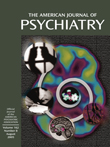Postdischarge Cannabis Use and Its Relationship to Cocaine, Alcohol, and Heroin Use: A Prospective Study
Abstract
OBJECTIVE: Research on the effects of cannabis on the brain and behavior has been surprisingly scarce. In humans, laboratory studies document toxicity and psychoactive effects of cannabinoids. However, among substance abuse patients, only a few studies have prospectively examined the relationship of cannabis use to remission or relapse of use of other substances. Because cannabis is a widely used substance, the authors examined whether cannabis use during follow-up after discharge from inpatient treatment affected cocaine, alcohol, and/or heroin use. METHOD: Two hundred fifty patients 18 years old or older from an inpatient psychiatric/substance abuse setting participated in a Psychiatric Research Interview for Substance and Mental Disorders. All patients were diagnosed according to DSM-IV as having current alcohol, cocaine, and/or heroin dependence. Sustained remission was defined as at least 26 weeks without use following hospital discharge. Data were analyzed with Cox proportional hazards models. RESULTS: About one-third of the patients (N=73) used cannabis after hospital discharge. Postdischarge cannabis use substantially and significantly increased the hazard of first use of any substance and strongly reduced the likelihood of stable remission from use of any substance. Examination of specific substances indicated that cannabis use affected first use of alcohol, stable remission, and subsequent relapse of alcohol use as well as first use of cocaine and stable remission but was unrelated to heroin outcomes. CONCLUSIONS: Potential negative clinical implications of cannabis use should be considered when treating dependence on other substances and planning aftercare. Clinical and laboratory research is needed to provide understanding of the mechanisms of cannabinoids in relapse to alcohol and cocaine use.



